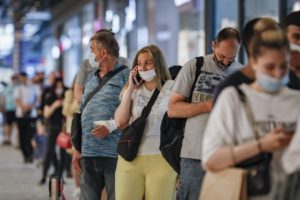

Until shortly before the pandemic, most social media platforms had few if any policies to address vaccine misinformation. Other studies have reached similar conclusions about the effect of exposure to online vaccine misinformation 4. In the United Kingdom, there was a 6.2 percentage point drop in the respondents who ‘strongly agree’ that they would get vaccinated, alongside a 6.4 percentage point drop in the same response among US respondents. The study found that, relative to factual information, these items of misinformation induced a decline in intent to vaccinate.
RUSSIA BE SPREADING VACCINE MISINFORMATION UNDERMINE TRIAL
As part of a randomized control trial conducted in the United Kingdom and United States, participants were exposed to examples of misinformation circulating on Twitter, including one post falsely claiming that a COVID-19 vaccine would alter DNA in humans and another falsely claiming that a COVID-19 vaccine would cause 97% of recipients to become infertile.

Research conducted by the Vaccine Confidence Project in 2020 aimed to quantify how exposure to online misinformation around COVID-19 vaccines might be affecting vaccination intent 3. Rumors and conspiracy theories around COVID-19 vaccines have undoubtedly been damaging.


 0 kommentar(er)
0 kommentar(er)
